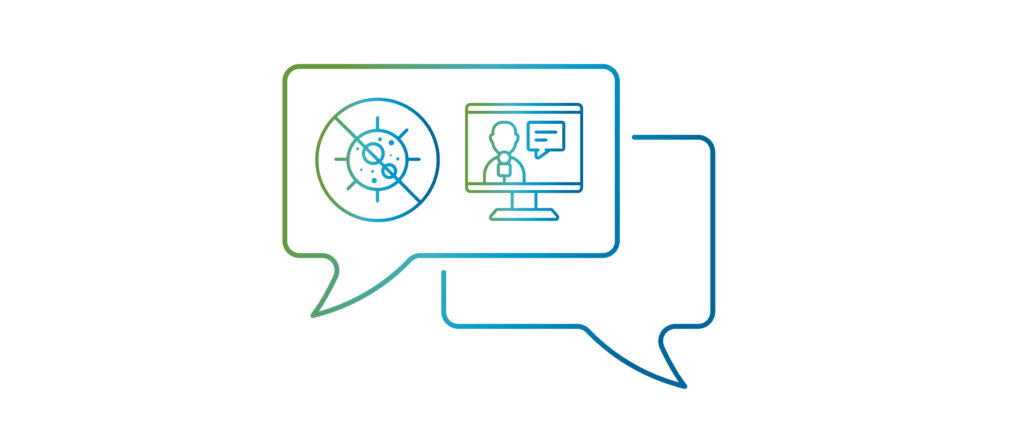March 6, 2020
Talking to Children About Highly Stressful Events

Our friends at Riverside Trauma Center put this information together on managing reactions to the coronavirus (COVID-19).
Highly stressful events make us feel like we’ve lost control, so engaging in constructive activities helps us to feel less vulnerable. If you are worried about how your child is reacting, speak with a school counselor or mental health professional.
Listen to your children: Ask what they have heard about the situation, for example: “you’ve probably heard about a new virus that is going around that is like getting a cold or the flu. Do you have any questions you want to ask me?” Let them tell you in their own words and answer their questions at an age-appropriate level. The easiest way to have this conversation might be during an activity, such as drawing or driving with you in the car. Details that may be obvious to adults may not be to children. For example, a child may hear about the virus on television and assume it is occurring in every community and school. Be truthful, but don’t tell them more information than they can handle for their age.
Focus on their safety: Once you understand their perception of the stressful event, be clear that you will always do your best to keep them safe and let them know doctors and scientists are also working hard to ensure our overall safety. Remind them that there are things we can do to stay healthy, such as washing our hands frequently, not sharing water bottles or drinking glasses, etc. Focus on positive news: based on what we know now; many who have this virus get through it and recover well.
Pay attention to your own reactions: Your children will be watching you carefully and taking their cues from you. If you can manage your anxiety about this situation, your children will be more easily reassured. It’s OK to let children know that you are concerned but be sure to show them how you can remain calm even if you are upset.
Monitor access to media: It will help if young children do not watch news reports or see a lot of other media coverage of the virus. For example, it might be frightening for children to see pictures or videos of healthcare workers in hazmat suits. If they do see that coverage, you can explain that is the way doctors and nurses keep themselves healthy while helping people who are sick with the virus. Young children who see coverage of the virus in another country on the news may think the situation is happening in their neighborhood.
Watch for behavior changes: Your children may show you through their behavior that they are still struggling with what they have heard or seen. They may have physical complaints or regressive behaviors often including nightmares, sleep problems, wanting to sleep in your bed or bedwetting. Children may need to be reassured that your family and local officials are working to keep us healthy. Ask your older children what they are seeing/ hearing on social media such as Facebook.
Maintain your routines: Sticking to your daily structure of activities: mealtimes, bedtime rituals, etc. reduce anxiety and help children feel more in control by allowing them to know what to expect. Should the situation evolve where some schools are closed, or some children must remain home, be sure to have plenty of fun and education activities available. Remind older children that they can continue to remain connected to friends through social media and video chats.
Keep the door open: Encourage your children to come to you with any questions or concerns and don’t assume the questions will stop after a few days or even a few weeks. Let them know their fears and questions are normal and you will always make time for them. Remind them all questions are welcome.
